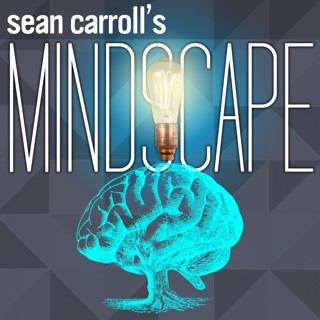
278 | Kieran Healy on the Technology of Ranking People
We claim to love all of our children, friends, and students equally. But perhaps deep down you assign a ranking to them, from favorite to not-so-favorite. Ranking and quantifying people is an irresist...
10 Kesä 20241h 15min

AMA | June 2024
Welcome to the June 2024 Ask Me Anything episode of Mindscape! These monthly excursions are funded by Patreon supporters (who are also the ones asking the questions). We take questions asked by Patreo...
3 Kesä 20243h 58min

277 | Cumrun Vafa on the Universe According to String Theory
String theory, the current leading candidate for a theory of quantum gravity as well as other particles and forces, doesn't connect directly to the world we see. It's possible that there is a large la...
27 Touko 20241h 22min

276 | Gavin Schmidt on Measuring, Predicting, and Protecting Our Climate
The Earth's climate keeps changing, largely due to the effects of human activity, and we haven't been doing enough to slow things down. Indeed, over the past year, global temperatures have been higher...
20 Touko 20241h 19min

275 | Solo: Quantum Fields, Particles, Forces, and Symmetries
Publication week! Say hello to Quanta and Fields, the second volume of the planned three-volume series The Biggest Ideas in the Universe. This volume covers quantum physics generally, but focuses espe...
13 Touko 20242h 12min

AMA | May 2024
Welcome to the May 2024 Ask Me Anything episode of Mindscape! These monthly excursions are funded by Patreon supporters (who are also the ones asking the questions). We take questions asked by Patreon...
6 Touko 20243h 35min

274 | Gizem Gumuskaya on Building Robots from Human Cells
Modern biology is advancing by leaps and bounds, not only in understanding how organisms work, but in learning how to modify them in interesting ways. One exciting frontier is the study of tiny "robot...
29 Huhti 20241h 10min

273 | Stefanos Geroulanos on the Invention of Prehistory
Humanity itself might be the hardest thing for scientists to study fairly and accurately. Not only do we come to the subject with certain inevitable preconceptions, but it's hard to resist the temptat...
22 Huhti 20241h 19min















